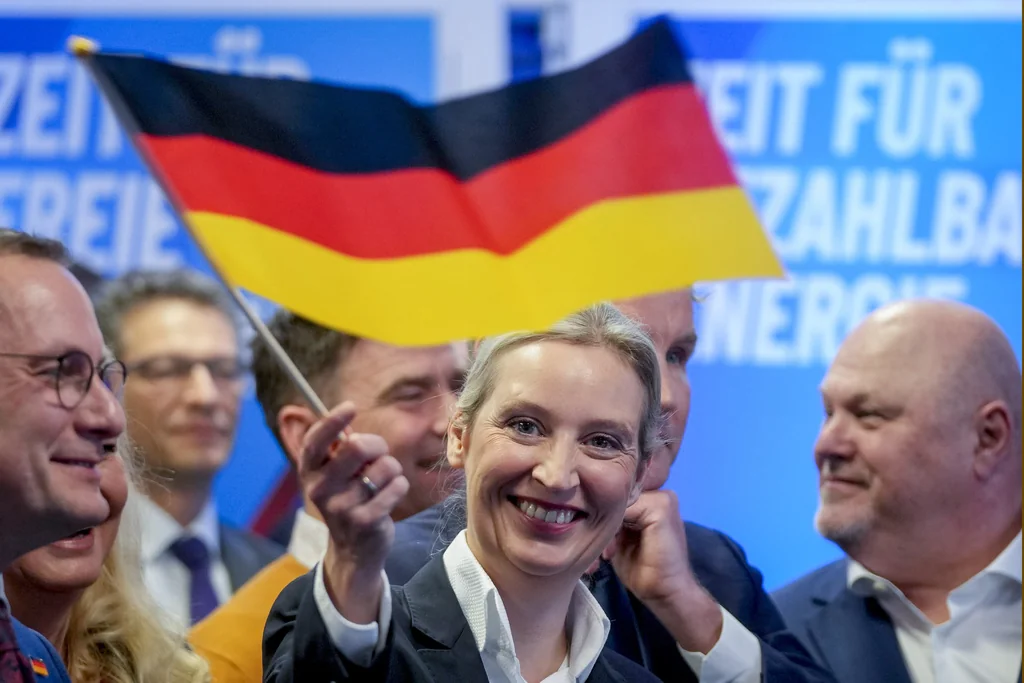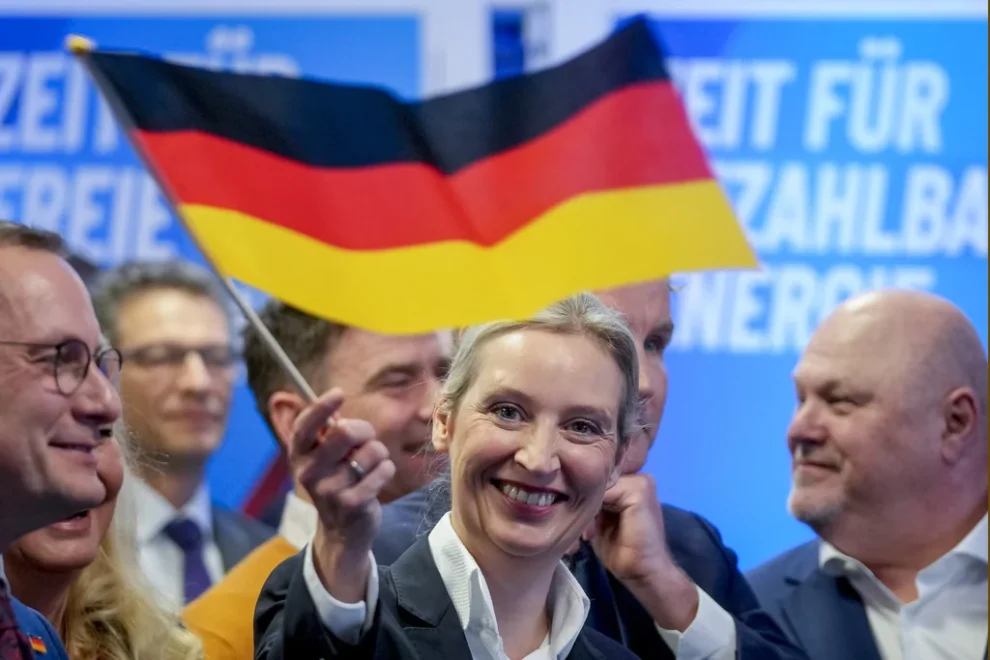Germany’s domestic intelligence agency designated the right-wing Alternative für Deutschland party as “extremist,” shortly after it became the single most popular party in the country.
The Federal Office for the Protection of the Constitution, the Verfassungsschutz, justified its decision by claiming there were “numerous indications of efforts by the AfD to undermine the free democratic basic order,” indications that were “confirmed during further investigation.” The designation opens up the agency’s ability to surveil the populist anti-immigration party more thoroughly, among other legal consequences.

The Verfassungsschutz justified its decision by claiming that the AfD didn’t consider citizens of a “migration background from predominantly Muslim countries” as equal to native Germans.
“The party’s prevailing understanding of the people based on ethnicity and descent is incompatible with the free democratic basic order. It aims to exclude certain population groups from equal participation in society, subject them to unconstitutional discrimination, and thus assign them a legally devalued status,” the statement read.
“This exclusionary understanding of the people is the starting point and ideological basis for ongoing agitation against certain individuals or groups of people, through which they are defamed and despised indiscriminately and irrational fears and rejection are stirred up,” it added, accusing the party of deepening “prejudices, resentment and fears towards this group of people.”
The Verfassungsschutz’s designation of the AfD as “extremist” largely centered on its rhetoric surrounding immigration, rhetoric that wouldn’t be controversial in the U.S. Republican Party. Evidence cited by Der Spiegel included Weidel’s use of the “right-wing extremist term ‘remigration,’” though the term is commonplace among mainstream right-wing and populist parties across Europe.
The agency also cited incidents in which party officials dressed up as deportation pilots or handed out airplane-shaped gummy bears during the federal election campaign.
AfD party leaders Alice Weidel and Tino Chrupalla denounced the decision in a joint statement, calling it “defamatory” and a “severe blow to German democracy.”
“The AfD, as an opposition party, is now being publicly discredited and criminalized shortly before the change of government,” their statement read, adding, “targeted interference in the democratic decision-making process is therefore clearly politically motivated. The AfD will continue to defend itself legally against these defamations that endanger democracy,” their statement read.
The designation of the AfD as extremist came as a surprise, as it was made with just days left for an outgoing caretaker government. The party can appeal the ruling.
Outgoing German interior minister Nancy Faeser defended the ruling, saying, “The AfD represents an ethnic concept that discriminates against entire population groups and treats citizens with a history of migration as second-class Germans.”
She insisted the decision was made with “no political influence.”
The biggest impact of the Verfassungsschutz’s ruling will likely reopen talks of banning the party altogether. The left-wing Social Democratic Party of Germany, which will be part of the incoming coalition government, has signaled a willingness for this course of action. The Verfassungsschutz doesn’t have the ability to ban the party — such a move must be taken by the Bundestag, government, or constitutional court.
“It’s clear for me that the ban has to come,” SPD deputy leader Serpil Midyatli said, according to Deutsche Presse-Agentur. She said the matter was now black and white.
However, a ban on the AfD would be unprecedented in modern Western history. Last month, the party became the single most popular in Germany for the first time, the first time since the founding of the modern German Republic that a party other than the Christian Democratic Union or SPD took the top spot in polls. Banning the country’s most popular party would be met with massive domestic and international backlash, especially from ally Elon Musk and the Trump administration.
The AfD came second in the February federal elections with 20.8% of the vote, taking 152 seats in the 630-seat Bundestag.
AFD BECOMES MOST POPULAR PARTY IN GERMANY FOR FIRST TIME
The exact label of the AfD Party is itself a source of controversy. Left-wing critics openly accuse it of being a neo-Nazi group. The party has consistently rejected the “far-right” label, with its leaders saying the party stands for “the liberal democratic order and has nothing to do with this suspected neo-Nazi grouping.”
Other analysts take a more nuanced view, painting the party as a coalition of broadly right-wing ideological factions.
























